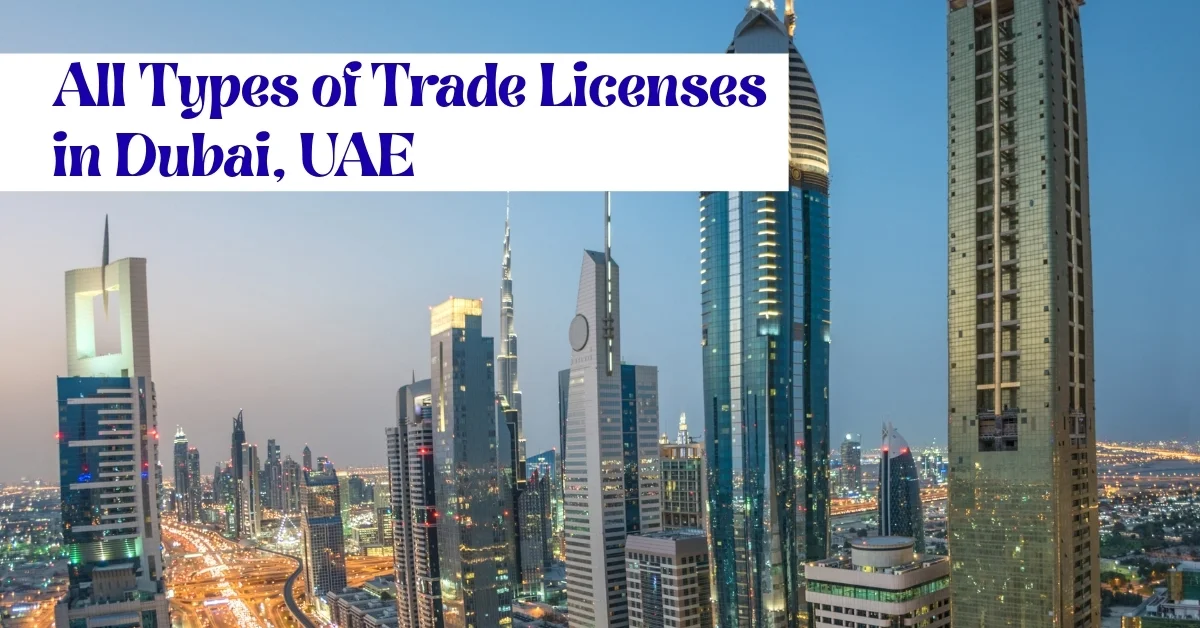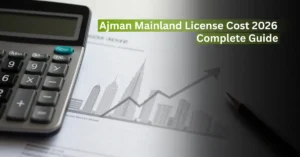Opening a bank account in the UAE is not limited to residents. Many foreigners and international investors explore the option of opening a non-resident bank account in UAE because of the country’s strong banking sector, stable economy, and global connectivity.
The UAE is one of the world’s most trusted financial hubs. With no personal income tax, advanced digital banking services, and international credibility, it attracts entrepreneurs, expatriates, and investors looking to manage their finances securely.
What is a Non-Resident Bank Account in UAE?
A non-resident bank account in UAE is a type of financial account that allows people or businesses who do not live in the UAE to use the country’s banking system. It gives non-residents access to secure financial services, international transfers, and investment opportunities without the need to hold a UAE residency visa.
Unlike standard resident accounts, these accounts are tailored to meet the needs of international clients who want to manage their wealth, trade globally, or expand their businesses in the UAE. The process may involve stricter compliance checks, but it opens the door to one of the world’s most trusted banking hubs.
1. Who Can Apply?
While not all applicants can open a non-resident bank account in the UAE, the groups listed below are eligible:
- Expatriates abroad: People who once lived in the UAE or have financial connections, such as property ownership or family ties.
- International investors: Those investing in the UAE’s booming real estate, stock market, or business ventures.
- Freelancers and professionals: Independent workers dealing with international clients who need reliable payment solutions.
- Foreign companies: Businesses planning to expand into the Middle East and requiring a credible banking presence.
These accounts are especially popular among entrepreneurs who want to operate in Dubai, Abu Dhabi, or other Emirates without permanently relocating.
2. Types of Non-Resident Accounts Available
UAE banks offer different account types to suit various needs. Each option comes with unique features:
- Savings Accounts: Ideal for secure deposits and interest earnings. Non-residents can save money, grow their wealth, and withdraw funds when needed.
- Current Accounts: Best for frequent international transactions. These accounts support global transfers, debit cards, and online banking services.
- Business Accounts: Designed for international companies or investors. They allow smooth cross-border payments, trade financing, and client credibility in global markets.
Some banks also provide multi-currency accounts, making it easier to hold funds in USD, EUR, GBP, or AED, which helps avoid currency exchange losses.
Why Open a Non-Resident Bank Account in UAE?
Opening a non-resident bank account in UAE offers far more than just convenience. The UAE has positioned itself as a global financial hub, making it one of the safest and most attractive destinations for international banking. Whether you are an individual, an investor, or a business owner, having a UAE-based account provides stability, credibility, and direct access to global markets.
1. Benefits for Individuals
For individuals, a non-resident account is more than just a place to store money—it’s a gateway to international financial freedom.
- Easy International Transactions: You can send and receive money across borders without delays. This is especially useful for expatriates supporting families abroad or freelancers working with clients in different countries.
- Access to Multiple Currencies: Many UAE banks allow you to maintain accounts in AED, USD, EUR, GBP, and other major currencies. This feature helps you avoid costly exchange rate fluctuations and makes global payments simple.
- Wealth Management and Savings: UAE banks provide investment tools, savings plans, and advisory services tailored for non-residents. This makes it easier to grow your wealth securely while benefiting from the UAE’s strong banking regulations.
2. Benefits for Businesses & Investors
For businesses and investors, the UAE offers unmatched opportunities through its strategic location and world-class banking system.
- Efficient Cross-Border Payments: A non-resident bank account in UAE simplifies international trade. Companies can pay suppliers, receive client payments, and manage transactions smoothly without facing international banking delays.
- Stronger Credibility: Having a UAE bank account boosts your international reputation. Clients and partners often trust businesses more when they operate through a UAE-based account, given the country’s high banking standards.
- Investment Opportunities: With an account in the UAE, investors gain easier access to real estate deals, stock markets, and corporate investments. Many banks also offer exclusive wealth management services tailored for international clients.
Eligibility Criteria for a Non-Resident Bank Account
While UAE banks welcome non-resident clients, certain conditions must be met:
- Age requirement: the applicant must be at least 18 years old.
- Residency status: applicants must prove they live outside the UAE.
- Financial stability: Banks may check existing banking history and income sources.
Each bank may have its own conditions, such as minimum balance requirements or restrictions on account usage.
Documents Required to Open a Non-Resident Bank Account in UAE
To ensure compliance with international banking standards, UAE banks request specific documents.
1. For Individuals
- Passport copy with a valid visa page.
- Recent utility bill or proof of residential address.
- Six-month bank statements from the home country.
2. For Businesses
- Company trade license (if applicable).
- Certificate of incorporation and memorandum of association.
- Board resolution authorizing the account.
- Passport copies of directors and authorized signatories.
Step-by-Step Process: How to Open a Non-Resident Bank Account in UAE
Opening a non-resident bank account in UAE may look complicated at first, but the process becomes smooth if you prepare everything in advance. Banks in the UAE follow international compliance standards, so being well-organized speeds up approvals and reduces delays.
Here’s a detailed step-by-step guide:
1. Choose the Right Bank
Start by researching the best banks for non-residents. Each bank in the UAE offers different services, minimum balance requirements, and international features. For example, Emirates NBD is popular for personal accounts, while HSBC Middle East is preferred by global investors. Compare fees, digital banking options, and multi-currency support before making a decision.
2. Select the Account Type
Decide whether you need a savings account, a current account, or a business account.
- A savings account is best if you want to grow your deposits securely.
- A current account suits frequent international transactions.
- A business account supports trade, cross-border payments, and investment activities.
Selecting the right account ensures that you get the banking features you truly need.
3. Prepare Required Documents
UAE banks are strict about documentation to prevent fraud and ensure transparency. Prepare the following in advance:
- A valid passport copy with a visa page.
- Proof of address from your home country (such as a utility bill).
- Six months of recent bank statements.
- For business incorporation documents, a trade license, and a board resolution.
Make sure your documents are clear, updated, and attested if required. Incomplete paperwork is one of the main reasons for delays.
4. Submit Your Application
Once you have chosen the bank and gathered documents, submit your application. Some banks allow online applications, but most require a personal visit to the branch. During this stage, you will be asked to provide signatures and answer basic questions about the purpose of your account.
5. Undergo Verification and Compliance Checks
The bank will carefully review your application under the Know Your Customer (KYC) and Anti-Money Laundering (AML) rules. They may ask for extra details about your source of income, business activities, or financial history. This step may take several days to a few weeks, depending on the bank’s internal policies.
6. Account Activation
Once approved, the bank will activate your account and provide you with account details, online banking access, and debit or credit cards if applicable. At this point, you can start using your account for international transfers, investments, or daily business operations.
Top Banks in UAE Offering Non-Resident Accounts
Several banks in the UAE cater to non-residents with specialized services:
- Emirates NBD: Flexible savings accounts and international transfer facilities.
- ADCB: Known for easy online banking and wealth management services.
- Mashreq Bank: User-friendly digital banking platforms.
- RAKBANK: Competitive fees and quick account setup.
- HSBC Middle East: Global banking solutions ideal for expatriates and investors.
Challenges Non-Residents May Face
While the process is clear, non-residents may face some challenges:
- Strict compliance checks: Banks require full transparency on income and transactions.
- Minimum balance requirements: Some banks may ask for AED 100,000 or more.
- Longer processing time: Account approval can take a few weeks.
Solutions
- Keep all financial records updated.
- Be transparent about income sources.
- Consider consultancy support for faster approvals.
Tips for a Smooth Application Process
Opening a non-resident bank account in UAE becomes much easier if you take a few proactive steps. One of the most important factors is maintaining a strong banking history. When your financial records in your home country show consistent income, regular transactions, and no outstanding issues, UAE banks are more likely to approve your application quickly.
Another key step is submitting complete documentation. Banks in the UAE follow strict compliance rules, and even a small missing detail can delay the process. Always double-check that your passport copies, proof of address, and bank statements are updated and correctly attested. Preparing everything in advance saves time and builds trust with the bank.
Finally, consider working with professional consultants. Business setup experts or banking advisors in the UAE understand each bank’s specific requirements and can guide you through the process. Their support not only reduces stress but also helps you avoid common mistakes that could slow down account approval. By following these tips, you can ensure a smooth, hassle-free experience when applying for your account.
Simplify Your Trade License with Ripple
Getting a trade license in the UAE can be complex, but Ripple makes the process simple, fast, and stress-free. Our experts handle approvals, paperwork, and bank coordination so you can focus on growing your business.
📞 Contact Us Today
- Phone: +971 4 250 0833
- Email: info@ripplellc.ae
- Website: www.ripplellc.ae
- Address: Cloud Spaces Fountain Views, Dubai Mall, Dubai, UAE
Conclusion
A non-resident bank account in UAE is a valuable financial tool for individuals and businesses seeking global opportunities. It offers security, credibility, and access to one of the world’s most advanced banking systems.
By preparing the right documents, understanding eligibility, and choosing the right bank, you can open your account smoothly. And if you want a stress-free process, professional consultants like Ripple can assist every step of the way.
Ready to open your non-resident account in the UAE? Contact Ripple today for expert guidance and fast approvals.






